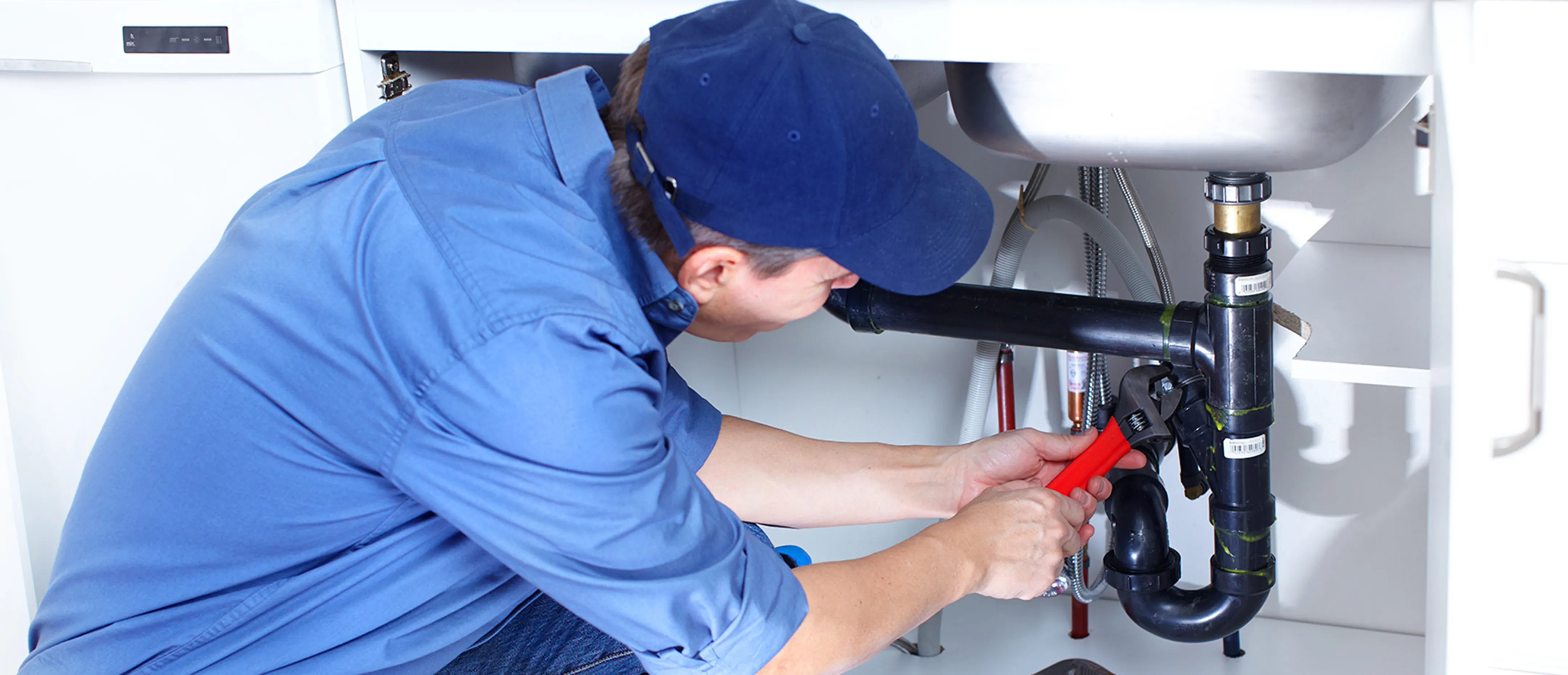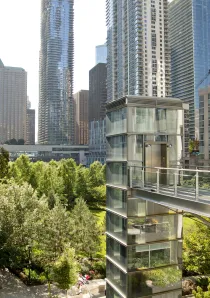What To Do If Your Chicago Landlord Doesn't Make Apartment Repairs
We refuse to believe that any Chicago landlord who lists on Domu would ever rent out an unsafe apartment or willfully neglect to make repairs. Still, we acknowledge that an occasional landlord gives the industry a bad name. And when that happens, Chicago tenants need help. That’s why Chicago’s Residential Landlord and Tenant Ordinance (otherwise known as the “CRLTO”) can be a tenant’s best friend.
Unless you live in an owner-occupied building of six units or less, you are likely protected by the CRLTO, which spells out the rights and remedies available to Chicago tenants. The CRLTO requires landlords to honor the terms of their Chicago apartment leases and maintain their apartments in compliance with “all applicable provisions” of the Chicago Municipal Code. To ensure there’s no confusion, the CRLTO cites a long list of specific code violations, ranging from “failure to maintain the structural integrity of the building” to “failure to provide hot and cold running water” to “failure to maintain stairways or porches in a safe condition and sound repair.” There’s even a broadly-worded “catch-all” violation at the end: “Failure to maintain the dwelling unit and common areas in a fit and habitable condition.”
The CRLTO recognizes three types of Chicago apartment rental violations: the minor defect, the material non-compliance, and the failure to provide essential services. The remedies afforded to tenants depend on the type of violation at issue.
- A “minor defect” is a problem for which the cost of repair does not exceed the greater of $500.00 or a half a month’s rent.
- A “material non-compliance” occurs when something renders the premises “not reasonably fit and habitable.”
- A “failure to provide essential services” occurs when the premises pose “an immediate danger to the health and safety of the tenant” or the landlord “fails to supply heat, running water, hot water, electricity, gas or plumbing.”
If your Chicago apartment contains a “minor defect,” you have two options. You have three. The first (not expressed in the ordinance) is to pick up the phone, call, and say “please.” Failing that, you have two options. The first is to file a lawsuit (not a popular course of action). The second is to “repair and deduct.” Before repairing and deducting, however, you must provide the landlord with written notice of the violation (whether the lease or the CRLTO) and allow the landlord 14 days from receipt of the notice to make the requested repairs, unless it’s an “emergency” situation, in which case the landlord must make the repairs as promptly as possible. If the repairs are not made in a timely fashion, you may then arrange to make the repairs on your own and deduct the cost from your monthly rent, but do not “repair and deduct” unless you are capable of complying with the following rules:
- The repairs must be made “in a workmanlike manner and compliance with existing law and building regulations.”
- The amount charged for the repairs may not exceed the reasonable price customarily charged for such work.
- You may not “repair and deduct” if the condition was caused by your own deliberate or negligent act or omission or the negligent act or omission of someone in your family or someone on the premises with your consent.
- Suppose the defective condition affects facilities shared by more than one dwelling unit. You must notify all other affected tenants and cause the work to be done to create the least practical inconvenience to the other tenants.
- If you live in a condominium building, you may not make any repairs unless the provisions of the condominium declaration so permit.
Assuming you can meet all the requisite conditions, you may “repair,” but you may not “deduct” until after submitting a copy of the paid invoice to the landlord.
Now let’s say you have a more significant problem. There’s been “material non-compliance” with the lease or the CRLTO, rendering the premises “not reasonably fit and habitable,” and the repair cost exceeds the greater of $500 or a half a month’s rent. In this case, you now have three options (not including picking up the phone and trying to work things out). You may file a lawsuit (yeah, right), terminate the lease and move out, or withhold a portion of the rent. If you elect the second option, you must first give the landlord written notice of the problem and 14 days from receipt of that notice to make the requested repairs. If the landlord fails to remedy the situation in a timely fashion, you may terminate the lease and vacate the unit within 30 days. The landlord must refund all your prepaid rent, plus your security deposit and accrued interest if you do so. If you do not vacate within 30 days, you waive the termination, and the lease remains in full force and effect.
If you elect the third option, you must first provide the landlord with written notice of your intent to withhold from the rent an amount that “reasonably reflects the reduced value of the premises” due to the material noncompliance. Suppose the landlord fails to make the requested repairs within 14 days after receipt of the notice. In that case, you may make the appropriate deduction, but only if you did not cause the defective condition, someone in your family, or someone on the premises with your consent. (Our trusty advisors inform us that tenants who deduct more than 50% of their rent are taking their chances and face the prospect of a counterclaim for eviction).
Okay. Now let’s say your situation is dire. Your landlord is failing to supply heat, running water, hot water, electricity, gas, or plumbing. There’s been a “material non-compliance” with the lease or the CRLTO, posing an “immediate danger” to your health and safety. As usual, you must start by giving the landlord notice. In this case, however, there is no 14-day waiting requirement. After providing notice you may avail yourself of any of the following options:
- You may procure reasonable amounts of heat, running water, hot water, electricity, gas, or plumbing services and, upon delivery of paid receipts to the landlord, deduct the cost from the rent.
- You may file a lawsuit and recover damages based on the reduction in the fair rental value of the dwelling unit.
- You may withhold from the rent an amount that reasonably reflects the reduced value of the premises if the landlord fails to correct the condition within 24 hours after receiving your notice.
- You may procure substitute housing, in which case you will be excused from paying rent during the period of the landlord's noncompliance, and you may also recover the cost of the reasonable value of the substitute housing up to an amount equal to the monthly rent.
- You may terminate the lease by written notice to the landlord if the problem persists for more than 72 hours after the landlord has been notified (in which event the landlord must return all prepaid rent and any security deposit with accrued interest). You then have 30 days to vacate; otherwise, you waive the termination, and the lease remains in full force and effect.
As you might expect, you are not entitled to avail yourself of these remedies if the problem stems from the failure of a utility company to provide service, or the condition was caused by your own deliberate or negligent act or omission, or the act or omission of a member of your family or someone else in the rental apartment with your consent.
The CRLTO is a complicated piece of legislation. The more carefully you read it, the more questions it raises. And while it generously provides aggrieved tenants with a host of rights, things will look much different if and when the parties meet in court. One careless play and the landlord will counterclaim for eviction, and nothing makes the heart race quite like being a defendant in an eviction proceeding. Fortunately for Chicago tenants, the CRLTO prohibits Chicago landlords from retaliatorily evicting tenants who assert their rights under the ordinance in good faith (and this prohibition extends even to tenants on month-to-month leases). Tenants who lack legal counsel may not be aware of such important additional protections. That’s why we at domu would be remiss if we didn’t at least close by suggesting that it never hurts to call a lawyer if you have any doubt about what you’re doing.




